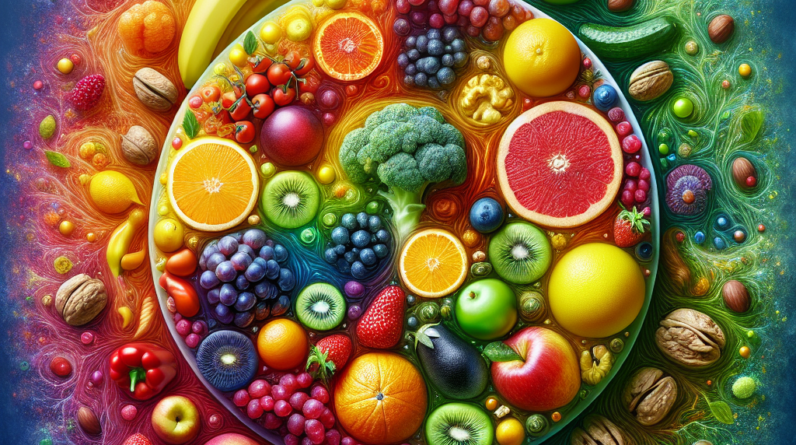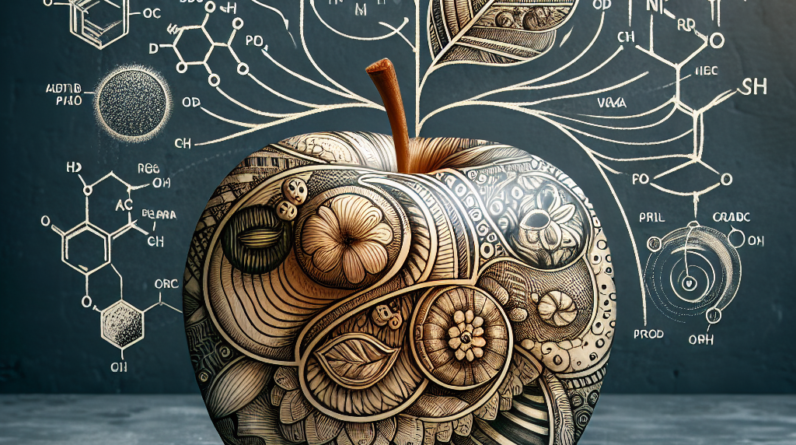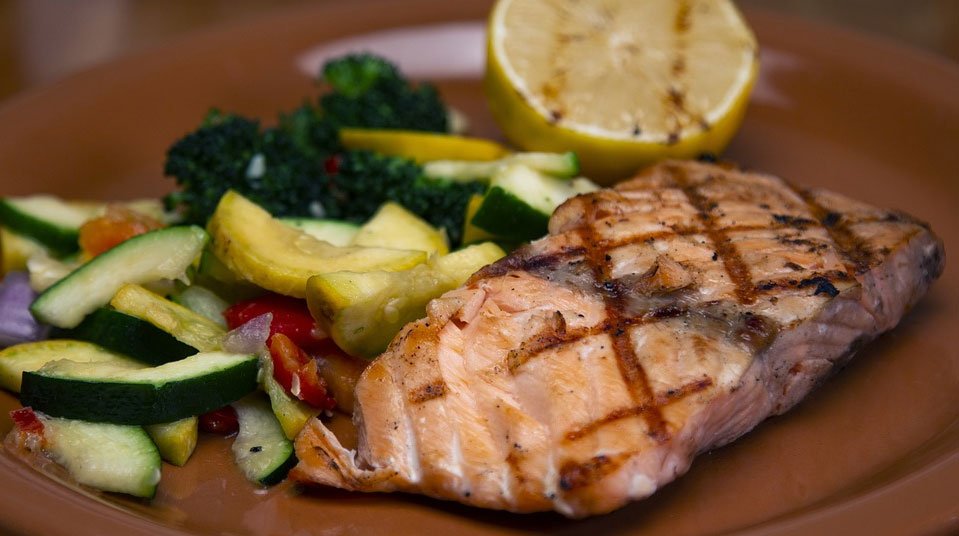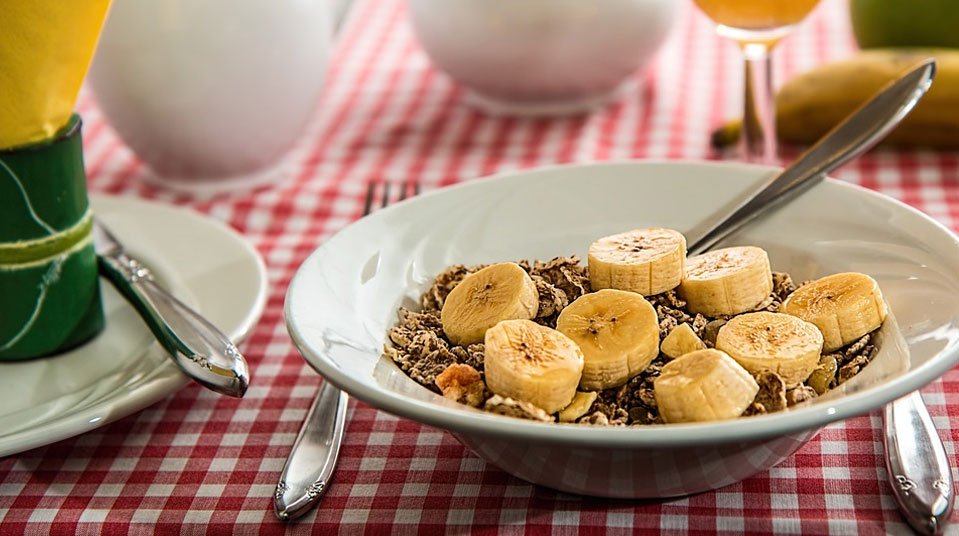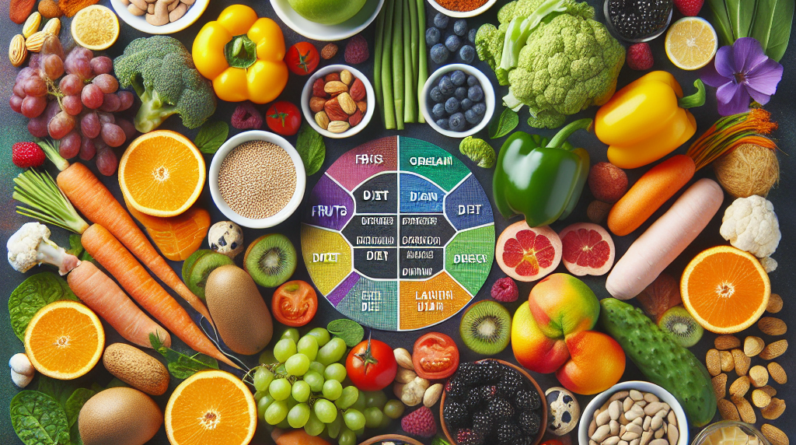
As you navigate through the challenges of aging, you may find yourself wondering, “What is the best diet for aging people?” The connection between nutrition and the aging process has become increasingly apparent in recent years. A healthy diet can not only help slow down the effects of aging but also contribute to an overall sense of well-being and vitality. In this article, we will explore how a balanced and nutrient-rich diet can assist in graceful aging, allowing you to embrace the journey of growing old with confidence and vigor. So, let’s dive into the world of nutrition and discover the secrets to a diet that nourishes both body and soul.
The Importance of a Healthy Diet for Aging
How eating a healthy diet can help with aging
As you age, it becomes increasingly crucial to prioritize your health and well-being. One of the most powerful tools at your disposal is a healthy diet. A diet that is rich in essential nutrients can significantly impact your overall health and even have anti-aging effects. By fueling your body with the right foods, you can support optimal physical and mental functioning, maintain a healthy weight, and reduce your risk of chronic diseases.
The impact of diet on anti-aging
You may be wondering, how does diet actually affect the aging process? Well, the food you consume plays a significant role in various aspects of aging. Firstly, a nutritious diet can help combat age-related inflammation and oxidative stress, which contribute to the deterioration of cells and tissues. By incorporating anti-inflammatory foods and antioxidant-rich sources into your diet, you can potentially slow down the aging process and reduce the risk of age-related diseases.
Additionally, eating a nutrient-dense diet can support a robust immune system, ensuring your body can effectively fight off infections and illnesses that become more common with age. Proper nutrition also aids in maintaining muscle mass, bone density, and joint health, allowing you to maintain an active and independent lifestyle as you grow older.

How a healthy diet can help with aging gracefully
Aging gracefully is a concept that many aspire to achieve. It involves embracing the natural process of getting older while taking proactive steps to maintain your health, vitality, and overall well-being. A healthy diet forms a crucial part of aging gracefully, as it can help you maintain a youthful appearance, physical and mental agility, and a high quality of life.
By providing your body with the essential nutrients it needs, you can nurture healthy skin, nails, and hair, minimizing the visible signs of aging. A balanced diet can also support brain health, enhancing memory, cognitive function, and overall mental sharpness. Furthermore, eating well can boost your energy levels and promote a positive mood, ultimately contributing to a sense of well-being and satisfaction with the aging process.
Nutritional Needs for Aging People
Understanding the changing nutritional needs
As you age, your body goes through physiological changes that can impact your nutritional needs. Metabolism typically slows down, leading to a decrease in calorie requirements. However, nutrient needs may remain the same or even increase due to factors such as declining absorption efficiency and changes in body composition. It is crucial to be aware of these changes and adapt your diet accordingly.
Key nutrients to focus on
While it is important to maintain a well-balanced diet that includes a variety of nutrients, certain key nutrients become particularly important as you age. These include:
-
Protein: Adequate protein intake helps preserve muscle mass and aids in healing and repair. Good sources of protein include lean meats, fish, eggs, dairy products, legumes, and plant-based alternatives like tofu.
-
Calcium and Vitamin D: Bone health becomes especially important as you age to prevent conditions like osteoporosis. Calcium-rich foods, such as dairy products, leafy greens, and fortified cereals, along with vitamin D from sources like sunlight, help support strong bones.
-
Omega-3 Fatty Acids: These healthy fats have been shown to have anti-inflammatory properties and benefit heart health and brain function. Include fatty fish like salmon, walnuts, flaxseeds, and chia seeds in your diet to obtain omega-3 fatty acids.
-
Fiber: A diet high in fiber promotes digestive health, helps manage weight, and reduces the risk of conditions like heart disease and diabetes. Whole grains, fruits, vegetables, and legumes are excellent sources of dietary fiber.
The role of hydration in aging
Water is often overlooked when discussing nutrition, but it is essential for overall health, particularly as you age. Proper hydration is vital for maintaining optimal bodily functions, from digestion and nutrient absorption to temperature regulation and joint lubrication. Aging can lead to a decreased sense of thirst and a reduced ability to retain water, making it critical to consciously drink enough fluids throughout the day. Aim for at least 8 cups of water per day, and remember that foods like fruits, vegetables, and soups also contribute to your daily hydration needs.

The Mediterranean Diet
Overview of the Mediterranean diet
The Mediterranean diet is renowned for its numerous health benefits and has gained popularity as a way to promote healthy aging. It is based on the traditional eating patterns of countries bordering the Mediterranean Sea and emphasizes the consumption of whole, minimally processed foods, abundant in fruits, vegetables, whole grains, legumes, nuts, and olive oil. This diet also includes moderate portions of fish and seafood, poultry, dairy products, and occasional red wine.
Benefits for aging individuals
The Mediterranean diet is associated with a myriad of health benefits that extend well beyond aging. It has been extensively studied and linked to a reduced risk of chronic diseases, including heart disease, type 2 diabetes, certain cancers, and neurodegenerative conditions like Alzheimer’s disease. This diet’s emphasis on nutrient-dense foods and healthy fats, such as those found in olive oil and fish, plays a pivotal role in promoting overall health, longevity, and well-being as you age.
Sample meal plan
- Breakfast: Greek yogurt topped with fresh berries and a sprinkle of nuts, accompanied by a whole-grain toast with avocado.
- Lunch: Mediterranean salad with mixed greens, cherry tomatoes, cucumber, olives, feta cheese, and a drizzle of olive oil and lemon dressing. Serve with grilled chicken or chickpeas for protein.
- Snack: A handful of almonds and a piece of fruit.
- Dinner: Baked salmon seasoned with herbs and lemon, served with a side of roasted vegetables and quinoa.
- Dessert: A small portion of dark chocolate with a few slices of orange.
The DASH Diet
Overview of the DASH diet
The DASH (Dietary Approaches to Stop Hypertension) diet was initially developed to counter high blood pressure, but it has since gained recognition for its many health benefits, especially for aging individuals. This eating plan focuses on reducing sodium intake while emphasizing foods rich in essential nutrients, such as fruits, vegetables, whole grains, lean proteins, and low-fat dairy products.
Benefits for aging individuals
The DASH diet offers various benefits for aging individuals, primarily due to its focus on promoting heart health and maintaining healthy blood pressure. By following the DASH diet, you can reduce the risk of cardiovascular diseases and hypertension, which become more prevalent with age. Additionally, this diet’s emphasis on whole, nutrient-dense foods and minimal processed foods provides ample fiber, vitamins, and minerals, supporting overall well-being and longevity.
Sample meal plan
- Breakfast: Oatmeal topped with berries and a sprinkle of nuts, accompanied by a glass of low-fat milk or a dairy-free alternative.
- Lunch: Whole-grain wrap filled with grilled chicken or turkey, mixed greens, sliced tomatoes, and hummus.
- Snack: Fresh carrot sticks with a small serving of hummus.
- Dinner: Baked or grilled salmon with a side of steamed vegetables and quinoa.
- Dessert: A bowl of mixed fruits with a dollop of Greek yogurt.
The Anti-Inflammatory Diet
Understanding inflammation and aging
Inflammation is a natural immune response that helps the body fight off infections and heal injuries. However, chronic inflammation is associated with various health issues, including age-related conditions such as arthritis, heart disease, and certain cancers. As you age, your body’s ability to regulate inflammation may decrease, making it crucial to adopt an anti-inflammatory diet to mitigate these risks.
Overview of the anti-inflammatory diet
The anti-inflammatory diet focuses on consuming foods that reduce inflammation and avoiding those that promote it. Key components of this diet include fruits, vegetables, whole grains, legumes, nuts, seeds, fatty fish, and healthy fats like olive oil and avocados. Reducing or eliminating processed foods, sugary snacks, refined oils, and excessive consumption of red meat can contribute to reducing inflammation and promoting overall health.
Benefits for aging individuals
By adopting an anti-inflammatory diet, you can potentially slow down the aging process and reduce the risk of age-related diseases. Consuming a variety of anti-inflammatory foods provides your body with a wide range of vitamins, minerals, antioxidants, and phytochemicals that protect against cellular damage and support optimal health. This diet can also help manage chronic conditions commonly associated with aging, such as arthritis and heart disease.
The Blue Zones Diet
Introduction to the Blue Zones diet
The Blue Zones are regions around the world where people tend to live longer, healthier lives. Researchers have identified common lifestyle and dietary factors that contribute to the longevity of these populations. The Blue Zones diet emphasizes whole foods, plant-based sources, and a moderate intake of animal products.
Key principles for healthy aging
The Blue Zones diet encourages individuals to adopt the following key principles for healthy aging:
-
Plant-Based Emphasis: Make plants the foundation of your diet by consuming a variety of fruits, vegetables, whole grains, legumes, and nuts.
-
Moderation: While plant-based foods dominate, the Blue Zones diet also allows for moderate consumption of fish, poultry, eggs, and dairy products.
-
Beans as Staples: Incorporate beans and lentils as primary sources of protein, as they are rich in nutrients and fiber.
-
Limit Processed Foods: Minimize or eliminate processed foods, sugary beverages, and unhealthy fats.
-
Mindful Eating: Practice mindfulness while eating, savoring each bite and listening to your body’s hunger and fullness cues.
Foods to incorporate for longevity
The diet in Blue Zones is characterized by an abundance of nutrient-dense foods associated with longevity. These include vegetables such as sweet potatoes, leafy greens, and cruciferous vegetables like broccoli and cauliflower. Whole grains like quinoa and brown rice, legumes such as lentils and chickpeas, and a moderate intake of fish, especially fatty fish rich in omega-3 fatty acids like salmon, are also mainstays of the Blue Zones diet.
The MIND Diet
Overview of the MIND diet
The MIND (Mediterranean-DASH Diet Intervention for Neurodegenerative Delay) diet combines elements of the Mediterranean and DASH diets and places specific emphasis on foods that are beneficial for brain health. It is designed to reduce the risk of Alzheimer’s disease and cognitive decline.
Benefits for cognitive health in aging
Several studies have shown that adhering to the MIND diet can significantly reduce the risk of Alzheimer’s disease and slow down cognitive decline as you age. The diet emphasizes foods rich in brain-healthy nutrients, such as leafy greens, berries, nuts, whole grains, fish, olive oil, and beans. It also discourages the consumption of red meats, butter and margarine, cheese, pastries, and sweets, which have been associated with an increased risk of cognitive decline.
Sample meal plan
- Breakfast: A spinach and mushroom omelet, a slice of whole-grain toast, and a cup of berries.
- Lunch: A grilled chicken salad with mixed greens, cherry tomatoes, walnuts, and a drizzle of olive oil and lemon dressing.
- Snack: A handful of mixed nuts and a small apple.
- Dinner: Baked cod with a side of steamed broccoli and quinoa.
- Dessert: A small serving of dark chocolate and a couple of strawberries.
Plant-Based Diets
Exploring vegetarian and vegan options
Plant-based diets, including vegetarian and vegan options, have gained popularity in recent years for their health and environmental benefits. While vegetarian diets exclude meat but include animal products like eggs and dairy, vegan diets eliminate all animal-derived foods. These diets can be highly beneficial for aging individuals if appropriately planned and include a variety of plant-based foods to meet nutritional needs.
Benefits of plant-based diets for aging
Plant-based diets can offer several benefits for aging individuals. They tend to be rich in fiber, vitamins, minerals, and antioxidants, all of which support overall health and reduce the risk of chronic diseases. These diets are often lower in saturated fat and cholesterol, which can benefit heart health and help maintain a healthy weight. Plant-based diets have also been associated with a reduced risk of diabetes, certain cancers, and age-related macular degeneration.
Considerations for nutrient adequacy
When adopting a plant-based diet, it is crucial to ensure you are meeting all your nutritional needs. Pay attention to protein sources, incorporating a combination of legumes, tofu, tempeh, seitan, and plant-based protein powders. It is also vital to consume adequate amounts of vitamin B12, which is primarily found in animal-derived foods. Consider supplementation or fortified foods to meet vitamin B12 requirements. Additionally, focus on obtaining sufficient iron, calcium, zinc, omega-3 fatty acids, and vitamin D through plant-based sources or appropriate supplementation.
Choosing the Right Diet for You
Factors to consider when selecting a diet
When choosing a diet for healthy aging, it is important to consider various factors that are unique to your needs and preferences. Some key considerations include:
-
Health Goals: Determine your specific health goals, such as managing weight, reducing the risk of certain diseases, or improving overall energy levels.
-
Medical Conditions: Consider any existing medical conditions you may have, such as diabetes or hypertension, and choose a diet that aligns with managing these conditions effectively.
-
Food Preferences: Take into account your personal food preferences and ensure the chosen diet allows for a variety of foods that you enjoy.
-
Sustainability: Choose a diet that you can realistically maintain in the long term, as sustainability is essential for long-lasting results.
Consulting with a healthcare professional
Before making significant changes to your diet, it is always advisable to consult with a healthcare professional, such as a registered dietitian or your primary care physician. They can assess your individual nutritional needs, review any existing health conditions, and provide personalized guidance, ensuring you choose a diet that is safe and effective for your aging journey.
Importance of personalized approach
It is important to remember that there is no one-size-fits-all approach to nutrition, especially when it comes to aging. Each individual has unique nutritional needs and preferences, so it’s essential to personalize your diet accordingly. Experiment with different approaches, listen to your body, and make adjustments as needed to optimize your health and well-being.
Practical Tips for Aging Well Through Diet
Building a balanced plate
One of the simplest ways to ensure a nutritious diet is to build a balanced plate. Aim to fill half of your plate with colorful fruits and vegetables, one-quarter with lean protein sources, such as fish, poultry, or plant-based alternatives, and one-quarter with whole grains or starchy vegetables. Including a small serving of healthy fats, like avocado or olive oil, and a source of dairy or dairy alternatives, completes the balanced plate.
Including exercise and physical activity
While diet plays a significant role in healthy aging, it is equally important to incorporate regular exercise and physical activity into your routine. Engaging in activities such as walking, strength training, yoga, or swimming can help maintain muscle mass, promote flexibility, improve cardiovascular health, and enhance overall well-being.
Embracing mindful eating practices
Mindful eating involves paying attention to the present moment while eating, focusing on the taste, texture, and enjoyment of food. This practice can help prevent overeating, enhance digestion, and promote a healthy relationship with food. Take the time to savor each bite, chew thoroughly, and listen to your body’s hunger and fullness cues. By embracing mindful eating practices, you can enhance the overall dining experience and improve your digestion and overall satisfaction with meals.
In conclusion, adopting a healthy diet is of utmost importance for aging individuals. A well-balanced and nutrient-dense diet can support optimal physical and mental well-being, mitigate the risks of chronic diseases, and enhance overall longevity. Whether you choose to follow the Mediterranean, DASH, anti-inflammatory, Blue Zones, MIND, or plant-based diets, it is crucial to personalize your approach and seek guidance from healthcare professionals to ensure your dietary choices align with your unique needs. Remember to focus on building a balanced plate, incorporating regular exercise, and embracing mindful eating practices to age gracefully and maintain a high quality of life. So, prioritize your health, embrace the power of nutrition, and enjoy the journey of aging with vitality and well-being.


